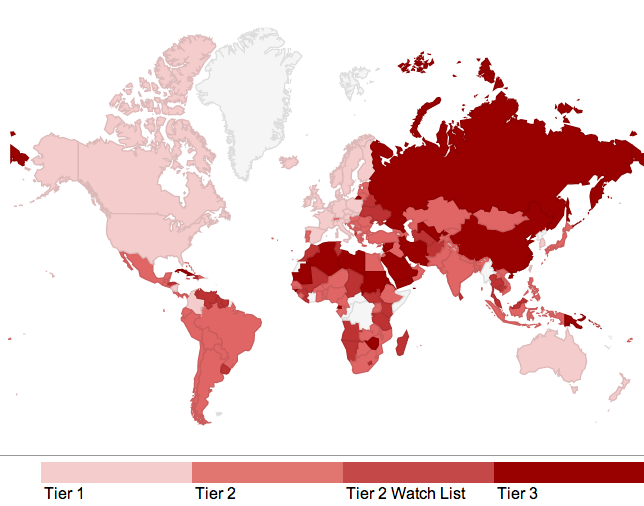An editorial from last weekend’s Independent:
What the All Party Parliamentary Group on Prostitution broadly proposes is Nordic-style reform, which is what the European Parliament also backed last week. This would shift the burden of prosecution from mostly women sellers to mostly male buyers and pimps. MPs are right to say that one of the root problems with Britain’s laws on the sex trade is that they send conflicting messages about who is in the wrong. If trafficked women, especially, are to be helped, they must be assured that the law is on their side. It is why the MPs want the mass of current legislation consolidated into a single Act, which makes it clear that only those who purchase sex will feel the rigours of the law.
Change along these lines will bitterly disappoint libertarians who want to see the sex trade fully legalised on Dutch or German lines. There is also an argument that it is illogical – another mixed message – to penalise the purchase of sex but not the sale. But, a counter-argument, which the authorities in Sweden, Norway and Iceland deploy with some justification, is that “redistributing guilt” over the sale of sex undoubtedly benefits women who have felt trapped into prostitution and makes life much harder for pimps and traffickers.
The underlying idea is that because many people (especially politicians) dislike the idea that women sell their bodies, it should be made illegal. The troubling reality that a lot of prostitutes are voluntarily in the business requires the would-be banners to come up with a justification that somehow invalidates the individual decisions of those women. The ongoing moral panic over human trafficking is the current choice of vehicle for that. Tim Worstall:
The only possible claim that can be made in favour of the banning of prostitution, or even of the declaration that it is something wrong that we would like to minimise, is that it represents some form of slavery in which people are forced to do things they do not agree to doing voluntarily.
And that is indeed the claim that is being made, see that reference to “trafficking” in the Independent. However, the one thing that we do in fact know about the “slavery” in prostitution is that it doesn’t, in this country at least, actually exist. For we had a plan whereby every single police force in the country went out looking for people who were indeed sex slaves. People who were being forced, against their will, into prostitution (ie, repeatedly raped, a vile crime). And when they had a look through all of the brothels, working flats, saunas and street walkers they could find not one single police force was able to come up with sufficient evidence to charge anyone at all with the crime of holding someone in such sex slavery. Operation Pentameter it was called and it’s the biggest refutation of the hysterical case about trafficking that could possibly have been devised.
The vision some have of people being forced onto the game is simply untrue. What we do in fact have is consenting adults deciding to offer such services as they wish to offer for the cash being proferred to them. And this isn’t something that requires customers to be made into criminals: nor is it something that requires suppliers to be made into criminals either. It’s just not something that requires anyone at all to be made into a criminal. It’s consenting adults deciding what to do with their own bodies.
Update: The Canadian government is conducting a survey on what to do in the wake of the Supreme Court decision that struck down key parts of Canada’s prostitution laws last year. You can participate in the survey here. The public consultation period lasts until March 17.
On December 20, 2013, in the case of Bedford v. Attorney General of Canada 1, the Supreme Court of Canada found three Criminal Code prostitution offences to be unconstitutional and of no force or effect. This decision gives Parliament one year to respond before the judgment takes effect. Input received through this consultation will inform the Government’s response to the Bedford decision.
You will find some specific questions on this issue at the end of this document. To put them in context, here is a brief overview of the current criminal laws addressing prostitution, the Bedford decision, and existing international approaches to prostitution.
1. http://scc-csc.lexum.com/decisia-scc-csc/scc-csc/scc-csc/en/item/13389/index.do?r=AAAAAQAHYmVkZm9yZAAAAAAB
H/T to Maggie McNeil for the link.




